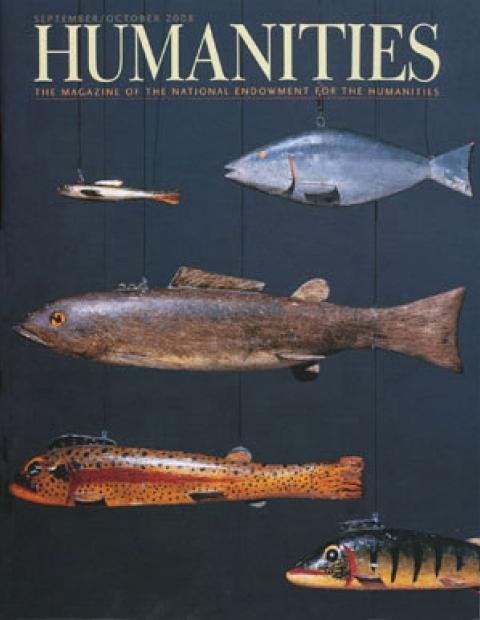In the early days of rock, British musicians heard the call of Sister Rosetta Tharpe. NEH fellow and George Washington University professor Gayle F. Wald describes the gospel diva’s influence in Shout, Sister, Shout! (Beacon Press).
Rosetta Tharpe never had Mahalia Jackson’s political cachet or her connection to the civil rights movement. Earlier that summer, she had appeared at the Newport Folk Festival, but she remained at best marginal to the folk scene, whose core audiences preferred the music of pioneering freedom singers like Odetta, a proud black woman who wore her hair in a “natural”—unlike Rosetta, who wore her hair in a mortifyingly out-of-date pressed and dyed style. At Newport, moreover, where the acoustic guitar was considered authentic, Rosetta’s new solid-body white Gibson SG custom electric instrument, said to have set her back $750, lost its significance as a symbol of her modernity and polish.
In England, on the other hand, Rosetta’s music was attracting a new cohort of fans. As early as 1957, Rosetta had told London’s Daily Mirror, “All this new stuff they call rock ’n’ roll, why, I’ve been playing that for years now.” Now, toting a glossy instrument with impressive-looking stainless steel hardware, she was making good on that claim. If there was anyone to contradict her, it was not Marie [Knight, her former singing partner]. Rock and roll actually started from the church, because it’s [about] time, and music is time,” she says. “If there is no time and no beat, there is no sound. Ninety percent of rock-and-roll artists came out of the church, their foundation is the church. . . . All the way back as far as you can go back, rock-and-roll artists started in the church.” In England, Rosetta’s instrument announced her status as “rock.” I was there at the beginning,” it said, “and I’m still here. Just watch what I can do.”. . .
No other American woman was as central to the transatlantic flow of sound that we know today as the British Invasion as Sister Rosetta Tharpe. A woman among men and a gospel musician among secular blues players, she was still somewhat sidelined as an anomaly. Paradoxically, however, the very qualities that had always rendered Rosetta an outsider—her flamboyance, her over-the-top style, her association with the guitar, her need to differentiate herself from other Pentecostals through unconventional choices and outrageous behavior—rendered her irresistibly compelling to the British blues-rockers of the 1960s. “We had heard the original rock ’n’ roll—Buddy Holly, Elvis and Gene, Vincent, Little Richard, the Everly Brothers and Chuck Berry,” said Moody Blues drummer Graeme Edge in 1992. “We put all of that together, and at the same time, discovered another 30 years of American experience on record—Sonny Terry and Brownie McGee [sic], Sister Rosetta Tharpe and all of those people. Then we repackaged it and sold it back in a very free approach.”

